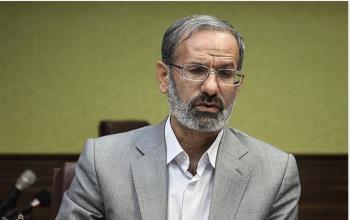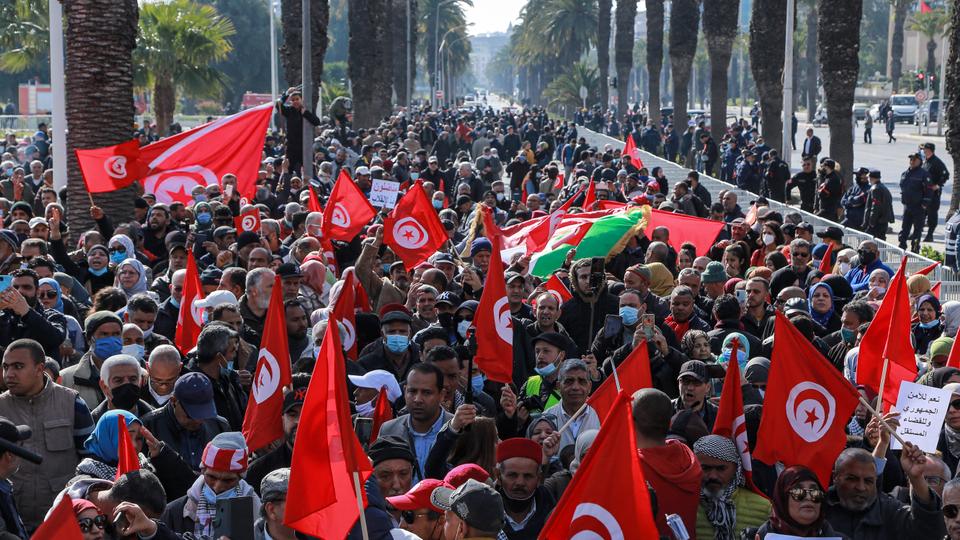Alwaght- Thousands of anti-regime protesters poured to the streets of Tunis on Sunday, following a presidential decree published on the official gazette in the early hours.
In the controversial decree, President Kais Saied gave himself additional powers over the country’s judiciary by establishing a new judicial watchdog that allows him to appoint, promote, and transfer judges.
The decree also prohibits judges from going on strike or holding any organized actions that could disturb the normal functioning of courts in the country.
Opposing the move, protesters, around 2000 in number, participated in a march organised by the country’s biggest political party Ennahda and a civil society group.
They waved Tunisian flags and chanted “Shut down the coup… take your hands off the judiciary”.
Nadia Salem, one of the protesters, was quoted as saying by Reuters that “what has happened is the completion of the coup… Tunisia has become a nascent dictatorship after being a nascent democracy”.
The protests on Sunday followed a two-day strike announced by the Association of Tunisian Judges that was widely observed across the North African country.
The decree came a week after Saied said he wanted to dissolve the High Judicial Council that resulted in a nationwide strike by judges who argued that the president did not have the authority to do that.
"Tunisian President Kais Saied is aware of the constitution, but he has acted contrary to Chapter 114 of the law and has elected an interim Supreme Judicial Council," Youssef Bouzakher, head of Tunisia's Supreme Judicial Council, was quoted as saying.
“He violated the law by allowing the executive branch to interfere in the judicial process,” Bouzakher noted, saying the judges “will not stay silent”.
He contended that there was “no legal framework” to dissolve the body, which was set up in 2016 to guarantee the judiciary's independence.
Last week, the head of Tunisia’s main legal body alleged that they had been locked out of their offices a day after President Saied pledged to dissolve it.
The judges had vowed to ignore the decree and carry on working, accusing the sitting president of behaving illegally. However, a day later, they found that police had locked their offices.
Almost all judges working in the High Judicial Council indirectly work under the supervision of Tunisian president and can be dismissed at any time on the orders of the president.
Saied has accused the judges of corruption and bias, but his critics say he is leading the country toward dictatorship and authoritarianism.
The International Court of Justice (ICJ) in a statement on Twitter Sunday said the decree “consolidates power in the hands of the President,” effectively ending “any semblance of judicial independence in the country.”
“It brings Tunisia back to its darkest days, when judges were transferred and dismissed on the basis of executive whim,” the ICJ said, calling the decree “unconstitutional and illegal.”
Tunisia, hailed by many as the only democracy to emerge following the 2011 Arab Spring, has seen reversal of many gains since Saied took power in October 2019.
Last July, the country was plunged into a constitutional crisis when the president suspended the parliament, dismissed the sitting premier and granted himself all executive powers.
He said that the "exceptional measures" were meant to save the country from collapse.



























